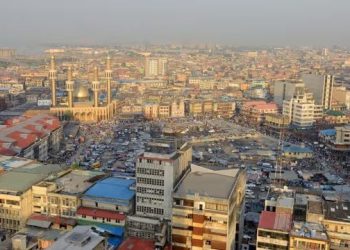Ramadan, the Muslim holy month, will commence either on Monday, March 11, or Tuesday, March 12, contingent upon the sighting of the new moon. The dawn-to-dusk fast spans 12 to 17 hours, varying across regions worldwide.
Muslims regard Ramadan as the month when the initial verses of the Quran were revealed to Prophet Muhammad over 1,400 years ago. Fasting entails abstaining from eating, drinking, smoking, and sexual relations during daylight hours to cultivate greater “taqwa,” or consciousness of God.
Why does Ramadan vary in its starting date annually?
Ramadan initiate 10 to 12 days earlier each year due to the Islamic calendar’s reliance on the lunar Hijri calendar, featuring months spanning 29 or 30 days. With the lunar year being 11 days shorter than the solar year, Ramadan will occur twice in 2030 – commencing on January 5 and later on December 26. The subsequent Ramadan initiation following March 12 will transpire 33 years from now, specifically in 2057.
Fasting periods around the world
Fasting durations worldwide vary due to the varying number of daylight hours. In the southernmost countries like Chile or New Zealand, Muslims fast for approximately 12 hours, whereas those in the northernmost regions like Iceland or Greenland endure fasts lasting 17-plus hours.
For Muslims residing in the Northern Hemisphere, fasting hours will be slightly shorter this year, gradually decreasing until 2031. This year marks a decrease until Ramadan encompasses the winter solstice in 2031, which represents the shortest day of the year. Subsequently, fasting hours will extend until the summer solstice, the longest day of the year in the Northern Hemisphere.
READ ALSO: Here’re Snapshot Of Cryptocurrencies Reshaping The Future Of Money
Conversely, fasting Muslims residing south of the equator experience the opposite phenomenon. In extreme northernmost cities like Longyearbyen in Norway, where the sun does not set from April 20 to August 22, religious decrees advise adherents to follow timings observed in Mecca, Saudi Arabia, or the nearest Muslim country.
Cities that have the longest and shortest fasting hours?
Here are the average fasting hours in cities across the globe. Please note that actual fasting durations and timings may vary daily, as well as the methods of calculation.
- Nuuk, Greenland: 16 hours
Reykjavik, Iceland: 16 hours
Helsinki, Finland: 15 hours
Oslo, Norway: 15 hours
Glasgow, Scotland: 15 hours
Berlin, Germany: 15 hours - Dublin, Ireland: 15 hours
Moscow, Russia: 15 hours
Amsterdam, the Netherlands: 15 hours
Warsaw, Poland: 15 hours
Astana, Kazakhstan: 15 hours - Brussels, Belgium: 14 hours
London, UK: 14 hours
Zurich, Switzerland: 14 hours
Stockholm, Sweden: 14 hours
Bucharest, Romania: 14 hours
Sarajevo, Bosnia and Herzegovina: 14 hours
Sofia, Bulgaria: 14 hours
Rome, Italy: 14 hours
Madrid, Spain: 14 hours
Paris, France: 14 hours
Lisbon, Portugal: 14 hours
Ankara, Turkey: 14 hours
Ottawa, Canada: 14 hours
Tokyo, Japan: 14 hours
Beijing, China: 14 hours
Athens, Greece: 14 hours
New York City, US: 14 hours
Washington, DC, US: 14 hours
Los Angeles, US: 14 hours
Tunis, Tunisia: 14 hours - Algiers, Algeria: 14 hours
Tehran, Iran: 14 hours
Kabul, Afghanistan: 14 hours
New Delhi, India: 14 hours
Dhaka, Bangladesh: 14 hours
Rabat, Morocco: 14 hours
Damascus, Syria: 14 hours
Islamabad, Pakistan: 14 hours
Baghdad, Iraq: 14 hours
Beirut, Lebanon: 14 hours
Amman, Jordan: 14 hours
Gaza City, Palestine: 14 hours
Cairo, Egypt: 14 hours
Doha, Qatar: 13 hours
Dubai, UAE: 13 hours
Khartoum, Sudan: 13 hours
Riyadh, Saudi Arabia: 13 hours
Abuja, Nigeria: 13 hours - Aden, Yemen: 13 hours
Dakar, Senegal: 13 hours
Addis Ababa, Ethiopia: 13 hours
Buenos Aires, Argentina: 13 hours - Colombo, Sri Lanka: 13 hours
Kuala Lumpur, Malaysia: 13 hours
Mogadishu, Somalia: 13 hours
Ciudad del Este, Paraguay: 13 hours
Nairobi, Kenya: 13 hours - Harare, Zimbabwe: 13 hours
Jakarta, Indonesia: 13 hours
Luanda, Angola: 13 hours
Bangkok, Thailand: 13 hours
Brasilia, Brazil: 13 hours
Johannesburg, South Africa: 13 hours
Montevideo, Uruguay: 13 hours
Canberra, Australia: 13 hours
Puerto Montt, Chile: 13 hours
Christchurch, New Zealand: 13 hours
Ramadan greetings in their different languages
Different Muslim-majority nations have their unique greetings in their native languages.
“Ramadan Mubarak” and “Ramadan Kareem” are the most frequently used greetings during this time, conveying wishes for a blessed and generous month to the recipient, respectively.
How do you greet your Muslim faithful during Ramadan?










